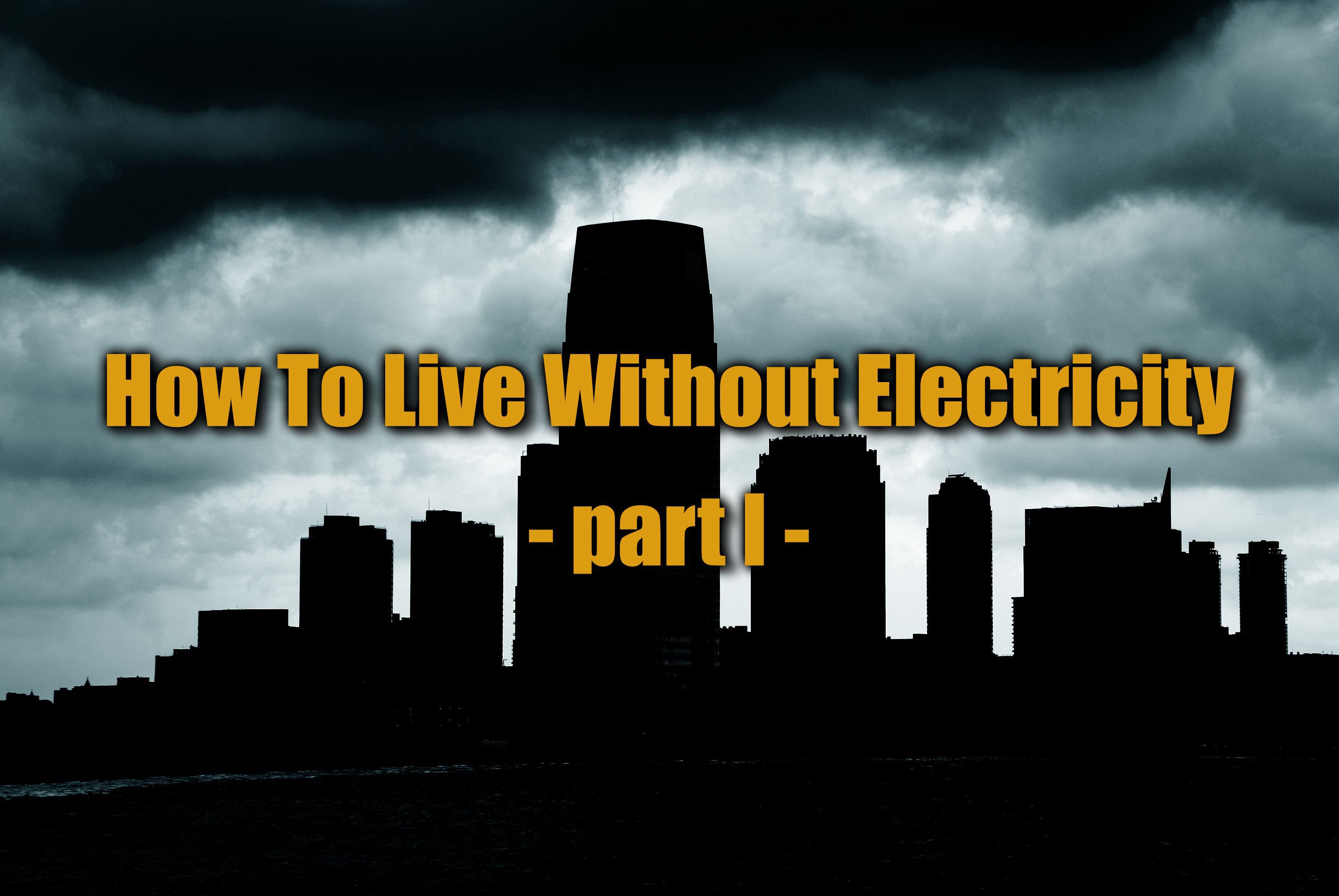Off grid urban living – Off-grid urban living represents a burgeoning trend, challenging conventional notions of city dwelling. This lifestyle, characterized by self-sufficiency and a reduced reliance on municipal services, is attracting individuals seeking greater autonomy, environmental responsibility, and community resilience within the urban fabric. From harnessing solar energy to implementing innovative water management systems, urbanites are forging new paths toward sustainable and independent living, despite the complexities of city regulations and infrastructure.
This movement is fueled by a growing awareness of environmental concerns, a desire for greater self-reliance, and a push for more sustainable living practices. However, the path to off-grid urban living is not without its challenges, requiring careful planning, significant investment, and a willingness to navigate complex regulations and potential social implications. This exploration delves into the realities of this unique lifestyle, examining the technological, legal, financial, and social aspects involved.
Defining Off-Grid Urban Living
Off-grid urban living represents a fascinating intersection of two seemingly contradictory lifestyles: the self-sufficiency associated with off-grid living and the density and convenience of urban life. It’s a niche movement challenging conventional notions of city dwelling, characterized by a conscious effort to reduce reliance on centralized municipal services while remaining within the urban fabric. This differs significantly from traditional off-grid living, typically found in rural areas, which involves complete self-sufficiency and often entails significant geographic isolation.
Similarly, it contrasts sharply with suburban lifestyles, which usually maintain a high degree of dependence on grid-connected utilities and services.The motivations behind embracing off-grid urban living are multifaceted. For some, it’s a response to growing environmental concerns, a desire to minimize their carbon footprint, and increase their resilience against power outages or disruptions in essential services. Others are driven by a pursuit of greater self-reliance, a yearning for more control over their energy consumption and resource management.
Obtain recommendations related to off grid living new mexico that can assist you today.
A significant factor for many is also the economic incentive; reducing reliance on expensive utility bills can lead to substantial long-term savings. The appeal lies in blending the independence of off-grid living with the cultural richness and career opportunities presented by urban centers.
Challenges and Benefits of Off-Grid Urban Living
Off-grid urban living presents a unique set of challenges compared to its grid-tied counterpart. Space constraints within urban environments can significantly limit the scale of renewable energy systems, such as solar panels or wind turbines. Acquiring permits and navigating local building codes for installing such systems can also prove complex and time-consuming. Waste management and water sourcing can also pose considerable logistical difficulties within a densely populated urban area.
The absence of a readily available backup power source can be a major drawback, necessitating careful planning and potentially expensive battery storage solutions.However, the benefits can be equally compelling. Reduced utility bills offer significant financial advantages. Increased self-reliance fosters a sense of empowerment and independence. A smaller environmental footprint aligns with a growing desire for sustainable living.
The ability to generate some or all of one’s own energy can provide a sense of security during power outages. Furthermore, the unique lifestyle can foster a sense of community among like-minded individuals, leading to the exchange of knowledge and support. The integration of green technologies into urban living can inspire similar efforts in the wider community, ultimately promoting broader adoption of sustainable practices.
Essential Systems and Technologies
Off-grid urban living necessitates the development of self-sufficient systems for water, energy, and waste management. The feasibility of such a lifestyle within a city environment depends heavily on the selection and implementation of appropriate technologies. Careful consideration of both the advantages and disadvantages of each system is crucial for successful off-grid urban dwelling.
Water Management Systems in Off-Grid Urban Dwellings
Securing a reliable water supply is paramount for off-grid living. Several technologies can provide this, each with its own set of benefits and drawbacks depending on location and resources.
| System | Technology Options | Pros | Cons |
|---|---|---|---|
| Water Collection | Rainwater harvesting, greywater recycling | Sustainable, reduces reliance on municipal water | Dependent on rainfall, requires filtration and purification systems, potential for contamination |
| Water Storage | Underground cisterns, above-ground tanks | Provides backup water supply, can store large volumes | Space requirements, potential for leaks, risk of contamination |
| Water Treatment | UV sterilization, filtration systems (sand, carbon), boiling | Ensures potable water, reduces health risks | Initial investment cost, ongoing maintenance, potential for filter clogging |
Energy Production and Storage in a Hypothetical Off-Grid Urban Dwelling
Imagine a three-story brownstone in a densely populated area retrofitted for off-grid living. The roof would be equipped with a solar photovoltaic (PV) array, generating electricity during daylight hours. This energy would primarily power the dwelling’s essential systems: lighting, appliances, and water pumps. Excess energy would be stored in a bank of high-capacity lithium-ion batteries located in the basement.
A small wind turbine, discreetly mounted on a higher rooftop section, could supplement solar energy generation, especially during periods of low sunlight. Furthermore, a backup generator, fueled by propane or biogas (from a small-scale anaerobic digester processing household organic waste), would ensure continuous power during extended periods of low renewable energy production. This system balances renewable energy sources with a reliable backup for periods of low sunlight or high energy demand.
Feasibility of Renewable Energy Sources in Urban Environments
The practicality of various renewable energy sources in urban settings varies significantly. Solar PV is generally feasible, although building codes and available roof space can be limiting factors. Wind turbines face greater challenges due to height restrictions and potential noise pollution concerns, making them less practical in densely populated areas. However, small-scale wind turbines might be viable on taller buildings or in less densely populated areas within the city.
Geothermal energy is less accessible in urban environments unless the dwelling is located near a suitable geothermal resource. The most successful urban off-grid systems often integrate multiple renewable energy sources to ensure reliability and resilience. For instance, a combination of solar PV and a small wind turbine could mitigate the intermittent nature of each technology, providing a more stable energy supply.
Furthermore, community-based energy sharing systems could further enhance the efficiency and resilience of urban off-grid initiatives.
Community and Social Implications: Off Grid Urban Living
The rise of off-grid urban living presents a fascinating social experiment, challenging traditional urban structures and potentially reshaping community dynamics. While offering increased self-sufficiency and resilience, it also raises questions about social cohesion, resource management, and the potential for both inclusion and exclusion within the urban fabric. Understanding these social implications is crucial for navigating the potential benefits and challenges of this growing trend.Off-grid urban communities differ significantly from traditional neighborhoods in several key aspects.
Traditional neighborhoods often rely on centralized infrastructure and services provided by municipalities, fostering a degree of dependence and anonymity. In contrast, off-grid urban communities prioritize self-reliance and localized resource management, leading to stronger interpersonal connections and a greater sense of shared responsibility. This shift necessitates a re-evaluation of traditional community structures and the development of new forms of social interaction and governance.
Social Dynamics in Off-Grid Urban Communities
The social dynamics within an off-grid urban community are characterized by increased interdependence and a higher degree of informal social interaction. Residents often collaborate on projects related to energy generation, water harvesting, and waste management, fostering a sense of collective efficacy and shared purpose. This collaborative spirit can strengthen community bonds and build trust among neighbors. However, challenges may arise from differing levels of expertise and commitment, requiring effective communication and conflict-resolution mechanisms.
Successful off-grid communities often prioritize inclusive decision-making processes and transparent communication channels to address these potential challenges. For example, the intentional community of Auroville in India demonstrates how shared values and collaborative governance can contribute to the sustainability and social cohesion of an off-grid community. The community’s emphasis on self-sufficiency and environmental stewardship has fostered a strong sense of belonging and mutual support among its members.
Fostering Community Resilience and Resource Sharing
The potential for fostering community resilience and resource sharing is a significant advantage of off-grid urban living. By decentralizing resource management and promoting local production, off-grid communities can reduce their vulnerability to external shocks and disruptions. This self-reliance can translate into increased resilience in the face of natural disasters, economic downturns, or disruptions to centralized infrastructure.Resource sharing is often a cornerstone of successful off-grid urban communities.
This can take various forms, from sharing tools and equipment to bartering goods and services. The establishment of community gardens, tool libraries, and repair workshops can facilitate resource sharing and reduce reliance on external markets. Such initiatives not only promote self-sufficiency but also foster a sense of community and mutual support.
- Community Gardens: Shared plots of land where residents cultivate food, fostering collaboration and promoting healthy eating habits.
- Tool Libraries and Repair Workshops: Centralized locations where residents can borrow tools or receive assistance with repairs, reducing individual expenses and promoting sustainability.
- Skillshares and Workshops: Regular events where residents can teach and learn practical skills, promoting self-sufficiency and community knowledge sharing. Examples include workshops on solar panel maintenance, composting, or basic carpentry.
- Bartering Systems and Local Currency: Alternative economic systems that facilitate exchange of goods and services within the community, reducing reliance on traditional monetary systems.
- Community-Owned Renewable Energy Systems: Collective investment in renewable energy sources, such as solar panels or wind turbines, reduces individual costs and promotes energy independence.
Technological Advancements and Future Trends

The burgeoning field of off-grid urban living is poised for significant transformation thanks to rapid advancements in technology. These innovations are not only enhancing the feasibility of self-sufficient urban lifestyles but also driving down costs and increasing overall comfort and efficiency. The integration of smart technologies promises to further optimize resource management, creating truly sustainable urban habitats.Emerging technologies are rapidly changing the landscape of off-grid urban living, offering solutions to previously insurmountable challenges.
The convergence of renewable energy sources, advanced water purification systems, and intelligent home automation is creating a new paradigm for urban sustainability.
Smart Home Automation for Resource Optimization
Smart home technology plays a crucial role in optimizing resource management within off-grid urban dwellings. Systems that intelligently monitor and control energy consumption, water usage, and waste generation are becoming increasingly sophisticated. For example, smart thermostats can learn occupancy patterns and adjust temperatures accordingly, minimizing energy waste. Similarly, smart irrigation systems can optimize water usage in urban gardens based on weather data and soil moisture levels.
Data analytics from these systems provide valuable insights into consumption habits, enabling residents to make informed decisions about resource allocation and conservation. The integration of these systems also facilitates predictive maintenance, identifying potential issues before they escalate into costly repairs. Consider a system that automatically adjusts solar panel angle based on sunlight availability, maximizing energy capture throughout the day.
This intelligent response to environmental conditions significantly improves energy efficiency.
Advancements in Renewable Energy Technologies
The efficiency and affordability of renewable energy technologies are rapidly improving, making off-grid living more accessible. Advances in solar panel technology, such as perovskite solar cells, are increasing energy conversion efficiency and reducing production costs. Similarly, advancements in wind turbine design are leading to smaller, more efficient turbines suitable for urban environments. The integration of energy storage solutions, such as advanced battery technologies and pumped hydro storage, is crucial for addressing the intermittent nature of renewable energy sources.
For instance, the Tesla Powerwall, a home battery system, allows residents to store excess solar energy for use during periods of low sunlight or high demand. This enhances energy independence and reduces reliance on the grid.
Future Trends and Challenges, Off grid urban living
The future of off-grid urban living is likely to see increased adoption of modular and prefabricated housing designed for energy efficiency and self-sufficiency. The integration of vertical farming and hydroponics will also become increasingly common, reducing reliance on external food sources. However, challenges remain, including the high initial cost of implementing off-grid systems, the need for skilled labor for installation and maintenance, and potential regulatory hurdles related to building codes and permits.
Addressing these challenges through government incentives, standardized building practices, and public education will be crucial for the widespread adoption of off-grid urban living. One example of a challenge is the need for robust cybersecurity measures to protect smart home systems from hacking and data breaches. This is particularly important in off-grid settings, where reliance on these systems is greater.
Ultimately, off-grid urban living presents a compelling vision of a more sustainable and resilient future within our cities. While challenges exist, the potential benefits—environmental, social, and personal—are significant. As technology advances and communities embrace innovative solutions, the feasibility and appeal of this lifestyle are likely to increase, prompting a re-evaluation of how we interact with our urban environments and the resources they provide.
The future of urban living may well incorporate elements of self-sufficiency and community-driven resource management, creating more ecologically conscious and empowered urban communities.



